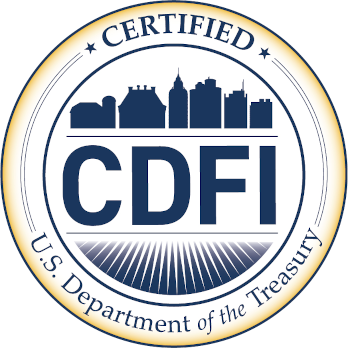Healthy Food Access
CFNE has partnered with the Neighboring Food Co-op Association on the Food Co-ops and Healthy Food Access project. This project would not be possible without the on-going support of The Cooperative Foundation and Newmans Own Foundation.
Project Goals
To increase access to healthy, regionally-sourced food and food co-op member-ownership and participation among economically marginalized individuals and communities in New England; to support information sharing among food co-ops regarding facilitation of participation of marginalized individuals and communities; and to raise the profile of food co-ops as a solution to the challenge of healthy food access in our region.
Presentations
- With Access for All: Reducing Co-op Barriers, CCMA Conference, Philadelphia, PA, June 2012
Note
These documents, especially the Toolbox, are evolving documents. As we continue to learn how to maximize the success of these programs, we will develop these resources. To receive updates on the Food Co-ops and Healthy Food Access project, please e-mail: healthyfoodaccess@coopfund.coop. Please indicate your affiliation and involvement in the healthy food access and/or food co-op movements.
Next Steps
From the beginnings of the movement, co-ops have had a dramatic impact on community development and access to healthy food for people of limited means. More recently, food co-ops in our region have continued this tradition, pioneering movements for natural, organic, fairly traded and locally sourced foods. The primary goals of this project are to assess, analyze and develop programs that support low-income access to healthy food, member/ownership and participation in food co-ops, particularly in New England and the Northeast. More than half of the co-ops surveyed were interested in participating directly in the development of this project moving forward. Current plans include further compilation and processing of survey data and convening a committee of co-op representatives to evaluate the findings and recommend next steps. Priorities for consideration include a “toolbox” or other models for sharing of best practices, the design of new programs for community education, outreach and engagement, and the development of potential funding mechanisms to support expansion of programs facilitating low-income access and participation.
Profiles
- Healthy Food Access Profile, Berkshire Co-op Market
- Healthy Food Access Profile, City Market
- Healthy Food Access Profile, Franklin Community Coop
- Healthy Food Access Profile, Putney Food Coop
Background
In the U.S. 23.5 million Americans (including 6.5 million children) live in areas with limited access to affordable and nutritious food, particularly in low-income neighborhoods and communities. The recent recession and its aftermath have had a dramatic impact on communities across our region, affecting people’s ability to provide themselves and their families with healthy food.
At the same time, food sites/default advocates have been able to encourage a national dialog on healthy food, local food sites/defaults and food access. It is a sign of our times that the United States Department of Agriculture, Health and Human Services and the US Treasury have recently joined together as part of First Lady Michelle Obama’s Let’s Move initiative to reduce childhood obesity and increase access to healthy, affordable food.
Much of New England faces a particular challenge to healthy food access. When comparing the cost of high-nutrition, less processed foods to low-nutrition, highly processed foods, the relative costs of nutritious food is amongst the highest in the country. This is true across the menu, including the cost of milk vs. soda, whole grains vs. refined grains, and fruit vs. packaged snacks1. Additionally, childhood obesity rates are higher in many parts of the region than the national average.
Food co-ops have been innovators in a range of food and social movements, including community ownership, natural foods, organic agriculture, fair trade and economic relocalization. The roots of the co-op movement are in empowering working people in their daily lives through democratically controlled, community-based enterprise and represent an opportunity to expand the benefits of healthy affordable food and ownership into low-income communities.
Historically, food co-ops in our region have emerged as community-based initiatives in response to limited access to healthy, organic and locally sourced food. In many places, these member-owned buying clubs and grocery stores were the pioneers in making such products available to the community and encouraging competition by mainstream retailers in these areas. Most of the food co-ops in New England were founded in the 1970s and 80s, though at least two have their roots in the Great Depression. Despite the difficult economy existing co-ops continue to grow in sales and in membership. In the past few years, a new wave of food co-op start-up efforts has emerged, reflecting a growing interest in local foods and community ownership. Food co-ops would appear to be an effective tool for supporting healthy food access, locally rooted economic infrastructure and ownership opportunities due to the values and principles of the movement, relatively affordable member shares (generally ranging from $50-$175), and participation and governance on the basis of one member, one vote. However, food co-ops in our region vary in their success in recruiting low-income member/owners and in serving their communities.
Many have successful programs in place to address barriers to participation, while others are challenged in developing effective strategies to reach these populations. For many food co-ops, there is the central challenge of being affordable to all sectors of the community while also facilitating economic support of food sites/defaults that provide high nutrition, protect human and ecological health, and promote fair relationships with producers and farmworkers.
In response to these opportunities and challenges, the Cooperative Fund of the Northeast (CFNE) and the Neighboring Food Co-op Association (NFCA) have partnered in a project to help expand the application of the co-op model to issues of access to healthy, affordable, regionally-sourced food. These organizations have also collaborated with CoopMetrics and the National Cooperative Grocers Association (NCGA) to survey food co-ops on a regional and national level about innovative programs to engage economically marginalized communities. Our goal is to better understand successful models, explore areas of opportunity and share these with food co-ops, community activists and economic development organizations.
CFNE has a 36-year history of providing capital and technical assistance to co-ops, worker owned enterprises, and non-profits in distressed communities, including many of New England’s food co-ops. NFCA is a cooperative association of more than 20 existing and start-up food co-ops in western New England that are committed to a shared vision of a thriving regional economy, rooted in a healthy, just and sustainable food sites/default and collaboration among co-ops. Included in this vision is access to healthy, regionally sourced food for everyone.





